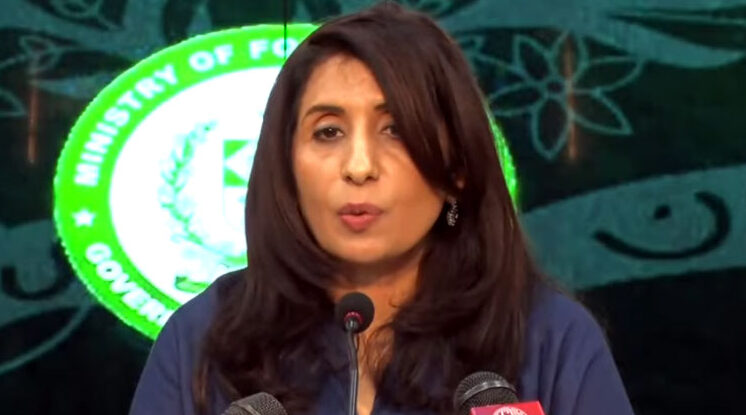Pakistan has raised serious concerns about India’s purported support for terrorist groups targeting its soil. At a press briefing in Islamabad, Foreign Office Spokesperson Mumtaz Zahra Baloch highlighted the longstanding issue, referring to India’s involvement in destabilizing Pakistan through support for various terror groups.
Baloch pointed to the case of an Indian naval officer arrested in Pakistan a few years ago, who was accused of masterminding espionage and terror activities in Balochistan. She emphasized that such activities were not isolated incidents but part of a broader pattern of Indian interference in Pakistan’s internal matters.
“The support for these groups is an undeniable fact,” Baloch stated, condemning India’s role in exacerbating regional instability. The Foreign Office spokesperson further called on Afghanistan to act decisively against these groups operating on its territory, urging its authorities not to allow their soil to be used as a base for anti-Pakistan activities. Pakistan has repeatedly raised this concern with Afghanistan, and Baloch warned that the patience of the Pakistani people should not be tested any further.
The impact of India’s alleged support for terrorism is profound, not only destabilizing Pakistan but also contributing to wider regional insecurity. Terror groups fueled by external backing threaten not only national sovereignty but also the security of neighboring countries. This exacerbates existing tensions in South Asia, where trust is already fragile, and international peace is increasingly at risk.
In response to questions about Pakistan’s relationship with China, Baloch reaffirmed strong bilateral ties, particularly in the areas of counterterrorism and the protection of Chinese nationals in Pakistan. She emphasized the strategic partnership between China and Pakistan, asserting that any efforts to disrupt this relationship would be thwarted by both countries.
Regarding ties with the United States, Baloch highlighted the long-standing friendship between the two nations but reiterated that future cooperation must be based on mutual respect, shared interests, and non-interference in domestic affairs.


